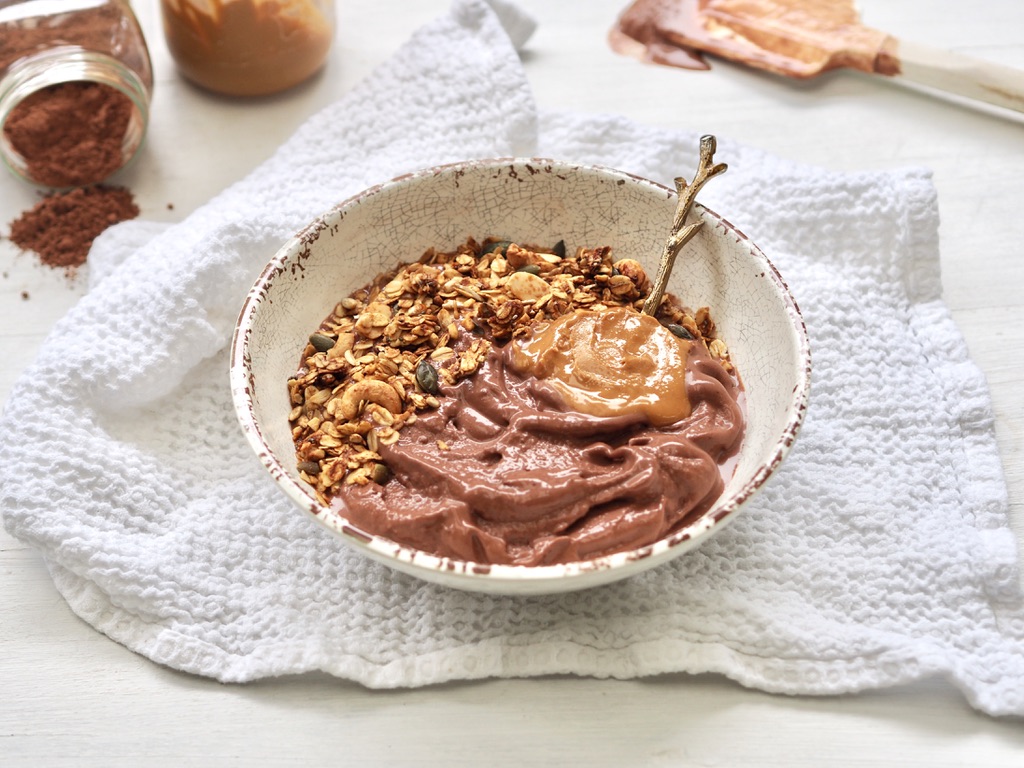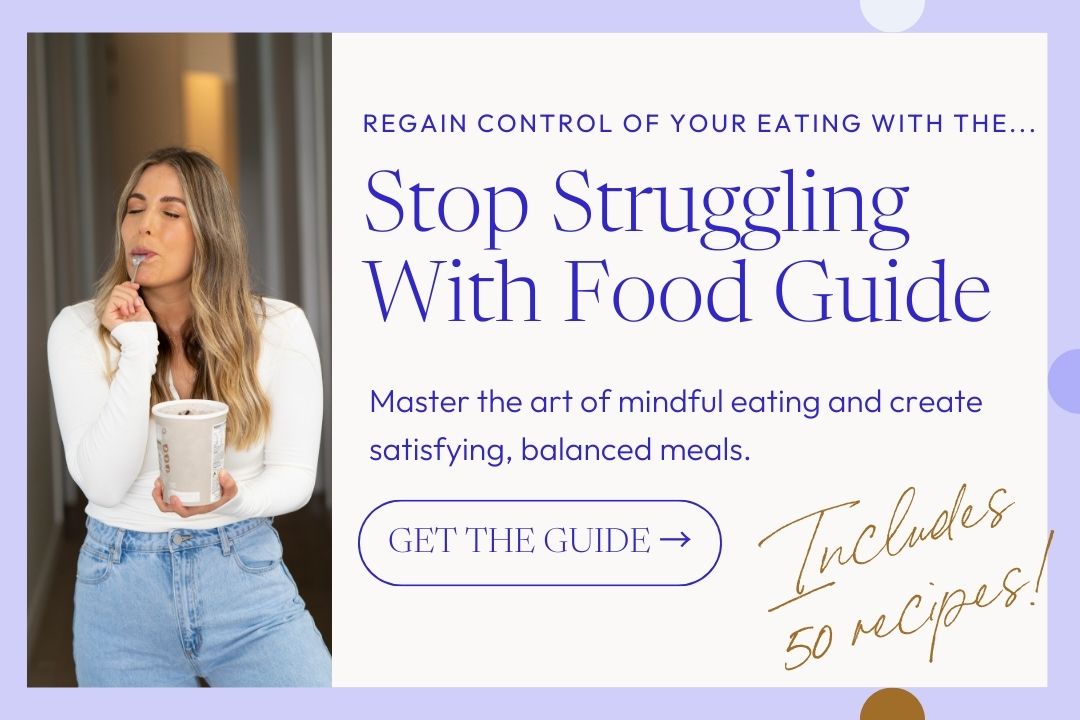Let’s dive into a topic that’s increasingly relevant in our health-obsessed world: orthorexia.
Understanding orthorexia is crucial as it highlights the dangers of an obsessive focus on healthy eating.
As a dietitian, I’ve watched the pursuit of perfect health become an all-consuming battle for many. Myself included. So, if you’re wondering; “Am I a healthy eater or do I have an unhealthy obsession with food?” you’ve come to the right place.
Let’s dive into orthorexia nervosa and talk about the thin line between healthy eating and an extreme, unhealthy food fixation.
What is Orthorexia?
Orthorexia nervosa is an obsession with eating super healthy, ‘clean’ foods. It’s not just about the number of calories or how much you eat, but about the nutritional quality of the food.
People with orthorexia often set strict food rules, cutting out things like gluten or going vegan, vegetarian, or pescatarian. They might become overly interested in what others eat and obsessively follow healthy lifestyle bloggers, watching “What I Eat in a Day” videos. All of which can be really unhelpful.

The hidden dangers of orthorexia
People with orthorexia often create strict food rules, eliminating entire food groups like gluten, dairy, or meat. This obsession can lead to nutrient deficiencies and a number of health issues, such as mood swings, anxiety, and social isolation.
Ironically, the quest for perfect health can result in significant health problems.
When healthy eating becomes a problem
So, where’s the line between healthy eating and orthorexia?
Diet culture often celebrates orthorexic behaviours, with comments like “I wish I had your willpower” which only reinforces the obsession. However, if your healthy eating plan is so strict that it causes stress or prevents you from enjoying social occasions, it might be a sign that things have gone too far.
Recognising the signs of orthorexia
Here are some red flags to watch out for:
- Obsessively checking ingredients
- Constantly watching, listening and reading content about healthy eating
- Stressing over what you ate or will eat
- Avoiding social situations because of food
- Feeling extreme guilt for deviating from your food rules
The DSM-5 and Orthorexia
Although orthorexia isn’t officially recognised in the DSM-5, it falls under Avoidant/Restrictive Food Intake Disorder (ARFID). This broad category covers orthorexia and other eating issues.
If you’re dealing with major weight loss, nutritional gaps, or trouble with social activities because of food avoidance or restriction, it might be time to seek help.
Finding balance in healthy eating
Ask yourself: Is it worth sacrificing joy in life for the sake of being slightly healthier?
Think about a time when you felt happiest and most relaxed. Were you obsessing over food, or was there a more relaxed approach to eating and body image? Remember, it’s ok for food to be pleasurable and a way to connect with others.

Getting help for orthorexia
If you’re worried about your relationship with food, don’t wait for a formal diagnosis. Seek help from a psychologist or dietitian who specialises in eating disorders. They can guide you in reintroducing foods and regaining balance before it turns into an unhealthy obsession.
Recovery is possible, and you deserve to live a full, joyful life without being controlled by food rules.
If you or someone you know might be struggling, please reach out for help. Start by talking to your doctor, who can refer you to the right specialists. You don’t have to go through this alone.